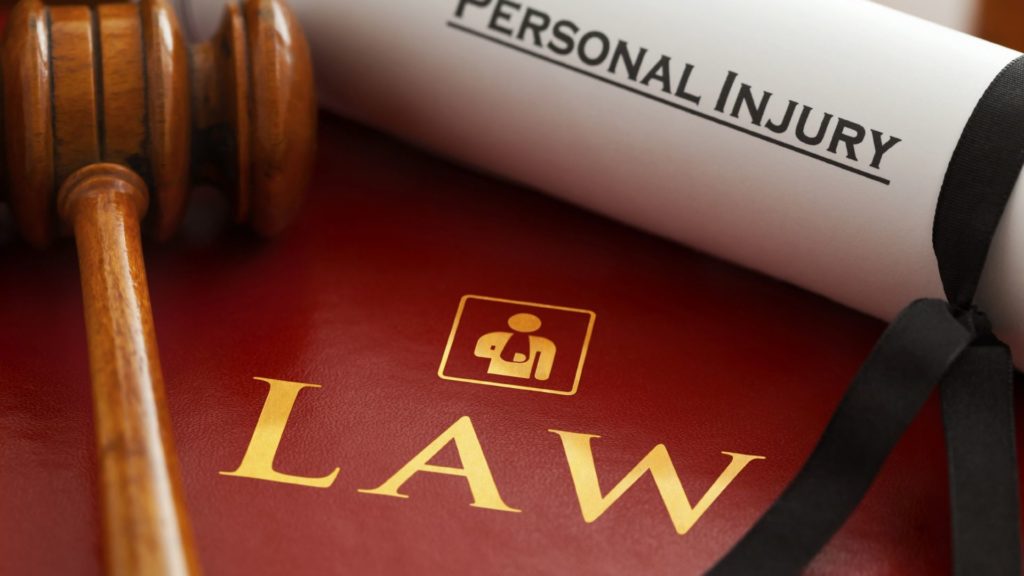
If another person’s actions injured you or someone you love, you probably feel overwhelmed and anxious. Medical costs can quickly pile up, all while missing work and trying to focus on your recovery. After a crash, seeking compensation through a civil lawsuit is not always at the forefront of your mind. However, it is imperative to understand that the clock is ticking. It is not always something you can push to the side and get back to once you are back on your feet weeks, months, or even years later. The clock on the statute of limitations for personal injury cases in Indiana begins ticking at the time of the injury. The best way to ensure you do not miss your opportunity to seek the compensation you deserve is to contact an Indiana personal injury attorney as soon as possible. At Gerling Law Injury Attorneys, we are happy to put our decades of experience to work for you.
What Is a Statute of Limitations?
A statute of limitations is the prescribed time period within which you can bring certain kinds of legal action. Statutes of limitations exist in both the civil and criminal realms and can vary from state to state and across various types of legal matters.
Personal Injury Statute of Limitations in Indiana
In Indiana, the statute of limitations for filing a personal injury lawsuit is generally two years from the date of the incident. If you file your lawsuit even one day past those two years, the judge will likely permanently dismiss your case. The rationale behind the two-year time frame is straightforward. It preserves the integrity of any potential evidence (e.g., keeps witness memory fresh), limits frivolous suits, and ensures a timely resolution to legal matters.
While the statute of limitations on personal injury in Indiana is generally two years, there are exceptions. These exceptions can sometimes call for less time to file your lawsuit; in other cases, you might have more time.
Exceptions to the Personal Injury Statute of Limitations in Indiana
While there are exceptions to the statute of limitations, they are rare. However, there are also circumstances where the statute of limitations is tolled or paused.
Medical Malpractice Cases
In some instances, the law extends the statute of limitations for medical malpractice cases beyond two years. The “discovery rule” exists because sometimes injuries from medical malpractice manifest over time and take years to show themselves. Unfortunately, it is not always immediately apparent that a physician made a mistake. A classic example is when a surgeon leaves an object inside a patient’s body. It is often not until the patient begins to exhibit pain that they discover the doctor left an instrument behind.
Minors
In Indiana, as in many other states, the statute of limitations does not begin to run until an injured minor turns 18. Allowing this expanded window for minors makes sense on a practical and moral level. For instance, if a 14-year-old is injured in an accident, but their parents do not want to pursue legal recourse, they are stuck. However, once they turn 18, they will have two years to decide for themselves.
Individuals with Disabilities
If you suffer from a physical or emotional disability, the law recognizes you might have trouble understanding your legal options after an injury. Therefore, Indiana law gives disabled persons two years from the date they are no longer disabled to file an injury claim.
Uncooperative Defendant
An uncooperative defendant is one that a plaintiff cannot locate, perhaps because they moved out of state or went into hiding. In that instance, the statute of limitations is tolled or paused until the plaintiff can locate the defendant.
Incarcerated Plaintiff
Incarcerated individuals might have an exception to the two-year statute of limitations while they remain behind bars.
City or County Entity Defendant
The above examples generally extend or toll the statute of limitations, allowing additional time to file a lawsuit. However, the statute is significantly shorter if the claim involves an Indiana city or county entity.
Depending on which entity is a named defendant, you might only have 180 and 270 days to submit a claim in writing. In other words, you have as few as six months to file your case.
When contemplating filing a personal injury lawsuit, hiring knowledgeable counsel is essential, so you don’t get caught off guard and miss important deadlines like this.
Some cases are straightforward, but others are complicated and can involve a complex set of facts and multiple parties. We recommend that you seek legal guidance sooner rather than later to ensure any applicable statute of limitations does not forever stop you from recovering compensation for your losses.
What Types of Cases Fall Under the Two-Year Statute?
The two-year personal injury statute of limitations in Indiana applies to all personal injury claims. This includes the following:
- Car accidents,
- Slips and falls,
- Medical malpractice,
- Product liability, and
- Premise liability claims.
If you are unsure if your accident or injury falls under the two-year purview, contact our personal injury lawyers at Gerling Law to learn more.
How to Prove Your Personal Injury Case
In general, a personal injury lawsuit is a legal process by which the injured plaintiff can seek compensation from the liable party. Often, the basis of the case is negligence. In other words, the plaintiff alleges the defendant’s negligence caused their injury. Negligence can be involved in many scenarios, such as slips and falls, car accidents, and product liability claims.
There are four elements that comprise negligence that a plaintiff must prove to be successful:
- The defendant owed the plaintiff a duty of care;
- The defendant breached that duty;
- As a result of the defendant’s breach, the plaintiff was injured; and
- The plaintiff suffered damages from the injuries.
Personal injury lawsuits can be convoluted, time-consuming, and costly. This is especially true when you are up against defendants with deep pockets. Discovery, motion practice, and litigation can be cumbersome. Our experienced accident attorneys have the skills and resources necessary to navigate even the most complex personal injury lawsuit successfully.
Indiana Personal Injury Attorneys
At Gerling Law, we operate on a no-recovery, no-fee basis. In other words, we only get paid if we obtain money on your behalf. Our attorneys understand what you are going through. Following an accident, we want to take the legal burdens off your shoulders so you can focus on your recovery. Contact us anytime, day or night, to get started on your case.

